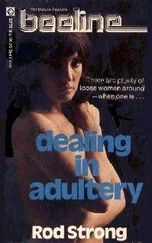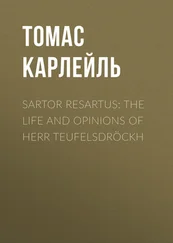Vladimir Nabokov - Strong opinions
Здесь есть возможность читать онлайн «Vladimir Nabokov - Strong opinions» весь текст электронной книги совершенно бесплатно (целиком полную версию без сокращений). В некоторых случаях можно слушать аудио, скачать через торрент в формате fb2 и присутствует краткое содержание. Город: New York, Год выпуска: 1990, Издательство: First Vintage International Edition, Жанр: Классическая проза, на английском языке. Описание произведения, (предисловие) а так же отзывы посетителей доступны на портале библиотеки ЛибКат.
- Название:Strong opinions
- Автор:
- Издательство:First Vintage International Edition
- Жанр:
- Год:1990
- Город:New York
- ISBN:нет данных
- Рейтинг книги:4 / 5. Голосов: 1
-
Избранное:Добавить в избранное
- Отзывы:
-
Ваша оценка:
- 80
- 1
- 2
- 3
- 4
- 5
Strong opinions: краткое содержание, описание и аннотация
Предлагаем к чтению аннотацию, описание, краткое содержание или предисловие (зависит от того, что написал сам автор книги «Strong opinions»). Если вы не нашли необходимую информацию о книге — напишите в комментариях, мы постараемся отыскать её.
Strong opinions — читать онлайн бесплатно полную книгу (весь текст) целиком
Ниже представлен текст книги, разбитый по страницам. Система сохранения места последней прочитанной страницы, позволяет с удобством читать онлайн бесплатно книгу «Strong opinions», без необходимости каждый раз заново искать на чём Вы остановились. Поставьте закладку, и сможете в любой момент перейти на страницу, на которой закончили чтение.
Интервал:
Закладка:
Must wilt before he could bestow it
4. scarce out or infant clothes,
Upon the world, yet scarce adrift
5. withered! Where is the ardent stir
From boyhoods shore. Now he will never
6. the noble aspiration,
Seethe with that generous endeavor
7. of young emotions and young thoughts,
Audacious, — tender or bumane!
8. exalted, tender, bold?
Those storms of mind and heart again,
9. Where are love's turbulent desires,
Stilled now are love's unruly urges
10. the thirst for knowledges and work
The thirst for knowledge and for deeds
11. the dread of vice and shame,
Contempt for vice and what it breeds ,
12. and you, fond musings.
And stilled you too, ethereal surges
13. you, token of unearthly fife,
Breath of a transcendental clime,
14. you, dreams of sacred poetry!
Dreams from the sacred realm of rhyme.
1. Perhaps, for the world's good
Perchance the world would have saluted
2. or, at least, for glory he was born;
In him a savior or a sage ;
3. his silenced lyre might have aroused
His ly-ere, now forever muted,
4. a resonant, uninterrupted ringing
Might have resounded down the age
5. throughout the ages. There awaited
In ceaseless thunder, and have fated
6. the poet, on the stair-way of the world
Its bearer to be elevated
7. perhaps, a lofty stair.
To high rank on the worldly grade;
8. His martyred shade has carried
Or haply with his martyred shade
9. away with him, perhaps,
Some holy insight will they bury
10. a sacred mystery, and for us
A gem, perchance, of wisdom choice
11. dead is a life-creating voice,
Now perished with his vital
12. and to his shade beyond the tomb's confines
The hymn of ages will not carry
13. will not rush up the hymn of races
Deep into his sepulchral den
14. the blessing of the ages.
The benedictions of all men.
I have italicized such verbal gobbets as are not found, or found in another form, in Pushkin's text. Omissions, here and throughout the version, are too numerous and ingrained to be profitably catalogued. Passive readers will derive, no doubt, a casual illusion of sense from Arndt's actually nonsensical line 2 of xxxvi. They will hardly notice that the chancrous metaphor in lines 45 inflicted by a meretricious rhyme is not Pushkin's fault, nor wonder at the naive temerity a paraphrast has of throwing in his own tropes when he should know that the figure of speech is the main, sacred quiddity and eyespot of a poet's genius, and is the last thing that should be tampered with. In the second stanza presented here our passive readers may skim over some other added metaphors, such as the «buried insight», the «gem of wisdom», and the «sepulchral den» (which suggests a dead lion rather than a dead poet). They may also swallow the «high rank» (which implies the sort of favor a meek poet like Zhukovski received from the Tsar, and not at all the «lofty stair» which Pushkin invokes); but perhaps the «thunder-bearer» of lines 5 — 6 shall briefly cause them to stumble.
These, I repeat, are types of the least offensive among Mr. Arndt's stanzas. A closer examination of the actual technique of his various mistranslations brings out the following points:
1. Natural objects changing their species or genus: «flea» turns into «roach», «aspen» into «ash», «birch» and «lime» into «beech», «pine» (many times) into «fir», and «racemose bird cherry» ( cheryomuha ) into «alder» (the harmful drudges who compile Russian-English dictionaries have at least, under cheryomuha, «black alder», i.e. «alder buckthorn», which is wrong, but not as wrong as Arndt's tree).
2. Transformation of names: «Prince N», Tatiana's husband, turns into «Prince M»; Griboedov's hero «Chatski» into «Chaatsky» (possibly through hybridization with Pushkin's friend Chaadaev); Tatiana's aunt «Pelageya Nikolavna» into «Pelya», an insufferable diminutive; another aunt, «Princess Aline», into the ridiculous «Princess Nancy»; Onegin's housekeeper, «Anisia», into «Mistress Anna», and «Vanya», the husband of Tatiana's nurse, into «Larry».
3. Anachronisms: Triquet's «spectacles» are said to be «gold pince-nez»; the «jams in jars» taken by Mrs. Larin to Moscow become «cans of jelly», and a traveler is introduced as «fresh from the station».
4. Comic scansion: «... where ou-er hero lately dwelled»; «... and ou-er luckless damzel tasted» (many more «ouer»s throughout). The same with endings in «ire»; «fiere», «squiere», «desiere», and so on. «Business» is scanned in a Germanic trisyllabic way («no service, business or wife»), and, in another line, «egoism» is generously granted four syllables as if it were «egoisum».
5. Burlesque rhymes: Feeler-Lyudmila, capital-ball, binoculars — stars, char — Africa, family — me, thrillerspillows, invadersdays does; and rhymes based on dialect pronunciation: meadow-shadow, message-passage, tenor-manor, possession — fashion, bury — carry, and so on.
6. Crippled cliches and mongrel idioms: «my flesh is parched with thirst», «the mother streaming with tears», «the tears from Tania's lashes gush», «what ardor at her breast is found».
7. Vulgarisms and stale slang: «the bells in decollte creations», «moms», «twosomes», «highbrow», «his women», «I sang of feet I knew before, dear lady-feet», «dear heart, dear all» (Lenski in his last elegy to Olga), «Simonpure», «beau geste», «hard to meet» (for «unsociable»), «my uncle, decorous old prune» (for «my uncle has most honest principles»), the nurse telling Tatiana «Aye, don't holler», Olga «blended of peach and cream», Tatiana writing to Onegin «my knees were folding» and «you justly dealt with my advances» (Tatiana, Pushkin's Tatiana!). Here too belongs a special little curiosity. The minds of versionists seldom meet but a singular convergence of thai soil occurs in Eight: xxxviii. Pushkin shows Onegin moodily sitting by the fire and dropping into it «now a slipper, now his magazine». Elton, in 1Q37, vulgarly translated this as «... the News drops in the fire or else his shoes» and Mr. Arndt has the almost identical «... the News slipped in the fiere or his shoes».
8. Howlers and other glaring mistakes. The true howler is a joint product of ignorance and self-assurance. Here are a few of the many examples provided by Mr. Arndt. InSix: v Pushkin describes Zaretski (formerly a rake, now a placid landowner in the backwoods of northwest Russia). Zaretski several years earlier, during the Napoleonic wars, was taken prisoner by the French and had a pleasant time in Paris — so pleasant in fact that now, in 182021, he would not mind being captured again (if there were another war) «so as to drink on credit at Very's [a caferestaurant in Paris, originally on the Terrasse des Feuillants in the Jardin des Tuilenes] two or three bottles every morning». Mr. Arndt completely misses the point, assumes that Very is a Parisian restaurateur established in Russia (say in Pskov), not too far from Zaretski's country seat, and holdly renders Pushkin's lines as «... braving bondage (what bondage in 1821?), enraptured (with what?), he still gallops on his morning sprees to charge three bottles at Very's». Another howler occurs in his version of Two: xxxv where Pushkin has «the people yawning» on Trinity Day in church, but where Arndt has «... Trinity when the peasants tell their beads» (which they do not commonly do in Russia) «and nod at morning service» (which is not easy in the Greek-Orthodox standing position). In Three: in the meager fare Mrs. Larin offers to her guests («jams in little dishes are brought; upon a small table, oil-cloth'd [lexically, «waxed»] a jug of lingonberry water is set») becomes a Gargarndtuan feast with utensils for giants: «... bowls of preserves, then the habitual bilberry water lumbers on (?) in a great waxsealed [mix-up with the epithet used in the text for the small table] demi-john» [two or three gallons?]. In Three: ix Pushkin alludes to St. Preux («the lover of Julie Wolmar») but Arndt, who apparently has not read Rousseau's novel, confuses husband with lover: «Julie's adoring swain, Wolmar».
Читать дальшеИнтервал:
Закладка:
Похожие книги на «Strong opinions»
Представляем Вашему вниманию похожие книги на «Strong opinions» списком для выбора. Мы отобрали схожую по названию и смыслу литературу в надежде предоставить читателям больше вариантов отыскать новые, интересные, ещё непрочитанные произведения.
Обсуждение, отзывы о книге «Strong opinions» и просто собственные мнения читателей. Оставьте ваши комментарии, напишите, что Вы думаете о произведении, его смысле или главных героях. Укажите что конкретно понравилось, а что нет, и почему Вы так считаете.










